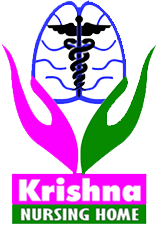Treatment Process
Krishna Nursing Home
Pathway to Treatment

Appointment
For counselling services, you need to take prior appointment You can decide the therapist by choosing from the list of counsellors available at our team (link) However, there is a 24hours emergency team which attends to psychiatric emergencies alone Psychological Emergencies (psychological crisis) For regular psychiatric consultation, assessment and treatment process, please check in with the appointment services (link) phone no.Consultation
It involves collecting information regarding client’s problem, his personality, his family, his educational and occupational attainments and functioning and doing mental state examination. If necessary, to find out the conflicts in a person we would administer certain psychodiagnostic tests (equivalent to blood investigations in physical disorders) and evaluating the severity of illness using appropriate psychological scales to understand the person’s personality which may be a contributing factor for his current problem by using personality assessments. The assessments may take 1-3 sessions, each session lasting up to 45-60 minutes’ time. In case of a child patient, the number of sittings for assessment may be more as well as psychometric assessments and the assessment of parents, his environment and his school environment.Psychometric Tests
List of tests administered at our facility:1. Wechsler’s Adult Intelligence Scale Administered on patients aged 17 or above, measures verbal, performance and overall intelligence quotient.
2. Malins Intelligence Test
The Indian adaptation of Wechsler’s Intelligence Test for Children for our culture, educational level, administered for detailed report on verbal, performance subtests for children aged 6 to 15 years.
3. Ravens Progressive Matrices
Culture fair test, nonverbally assessment of intelligence in children and adults
4. Gisselle’s Intelligence Test
Screening test of intelligence for clinical populations, such as children with intellectual disability, learning difficulty
5. Binet Kamat Intelligence Test
Administered for ages 3 to 22 measures short-term memory, visual-spatial abilities, abstract reasoning.
6. Seguin Form Board Test
It is useful in evaluating a child's eye-hand co-ordination, shape-concept, visual perception and cognitive ability, speed and accuracy.
7. Draw A Person Test
Measures a child's mental age through figure drawing task.
8. The Developmental Screening Test
Indian adaptation of developmental screening to measure disability index in children with developmental deficits.
9. Indian Scale for Assessment of Autism
Assessment of severity of autism in children using observation, clinical evaluation and testing by interaction.
10. Screen for Child Anxiety related Disorders (SCARED)
For assessment of anxiety and anxiety related disorders
11. Center for Epidemiologic Studies Depression Scale for Children (CESDC)
Administered for children aged 5 and above.
12. Child Bipolar Questionnaire
Provides indications of Paediatric Bipolar Disorder
13. Screening test for Oppositional Defiant Disorder, Conduct Disorder
14. Vanderbilt Attention Deficit Hyperactivity Disorder Diagnostic Parent Rating Scale
15. Vanderbilt Attention Deficit Hyperactivity Disorder Diagnostic Teacher Rating Scale
16. Child Behaviour Checklist
Used as diagnostic screener for ages 6 to 18
17. Child Young Brown Obsessive Compulsive Scale (C-YBOCS)
Used to assess symptom severity for children diagnosed with Obsessive Compulsive Disorder from 8 to 18 years.
18. Ages and Stages Questionnaire (ASQ)
Used as screener in developmental areas of speech, social interaction, motor skills.
19. Learning Disability Screening Test
Used as a preliminary screening instrument for learning disability.
20. The Diagnostic Test of Learning Disability
Assess domains of cognitive functioning, visual and auditory processing.
21. Reading and Spelling Age Test of Learning Disability
Age graded test to assess difficulty in reading and spelling test.
22. NCERT Graded Mathematics test
Graded test according to NCERT standards to assess difficulty in mathematics.
23. NIMHANS Index for Specific Learning Disabilities
24. Differential Aptitude Test
It measures 8 areas of aptitude to help client choose a career.
25. The BIG 5 Personality Questionnaire
26. Myer Briggs Personality Type Indicator
Indicates job stressors and jobs suited to client’s personality type.
27. Mini Mental State Examination (MMSE)
The Mini Mental State Examination (MMSE) is a tool that can be used to systematically and thoroughly assess mental status. It is an 11-question measure that tests five areas of cognitive function: orientation, registration, attention and calculation, recall, and language.
28. Montreal Cognitive Assessment (MOCA)
Screening assessment for detecting cognitive impairment. The MoCA assesses several cognitive domains: short-term memory, Visuospatial abilities, Multiple aspects of executive functions, Attention, concentration, and working memory and orientation to time and place
Diagnosis
With the history, mental state examination and with the necessary psychodiagnostic tests, the diagnosis is made as per DSM V or ICD 10 criteria. The diagnosis is explained in detail to the client as well as the family symptoms, briefing them about findings of investigations, causative factors and how current problem as evolved. Depending upon the severity, the treatment process could be discussed if patient could be treated as an inpatient or out patient.Treatment
The treatment process includes pharmacological and psychological treatments. The pharmacological treatments include current evidence based managements, along with discussing with the patient and the family about the benefits and possible side effects in a collaborative manner. The ultimate decision of a particular treatment is decided by the patient and his family. If necessary, physical tests and blood investigations will be conducted.The family and the patients will be educated in detail about the disease, duration of treatment to be taken, and blood tests if at all indicative of any side effects for the medication. For every patient, the counselling process is also part of the treatment in order to help them cope with their difficulties either by enhancing their coping skills and by educating patients how to modify and manage the stress factors. For certain disorders, treatment consists of using psychotherapeutic methods only.
